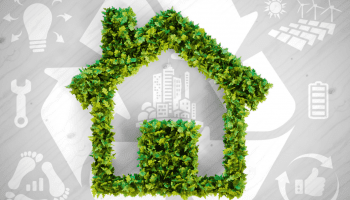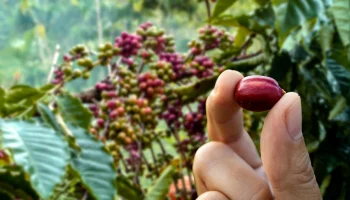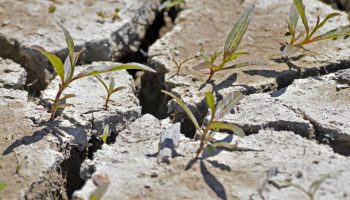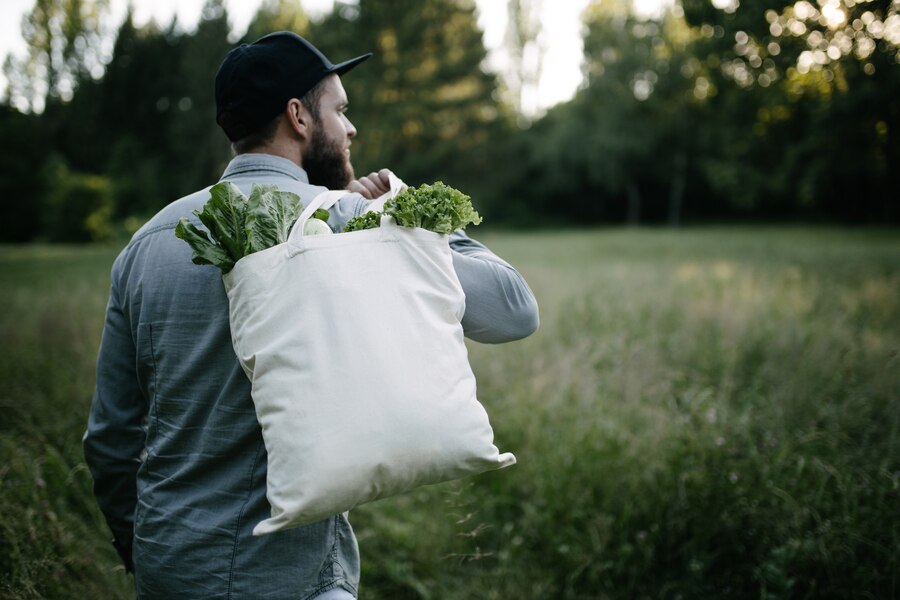Are you looking for ways to improve the health of your soil and increase crop yield on your farm? Look no further than compostable bags! These innovative bags not only provide a sustainable solution for farmers but also offer numerous benefits for soil health. By using compostable bags as organic mulching material, you can enhance moisture retention, suppress weed growth, and ultimately enrich your soil with essential nutrients.
When it comes to agriculture, soil health is paramount. Healthy soil provides a fertile environment for plants to grow and thrive. Compostable bags play a crucial role in maintaining and improving soil health by acting as organic mulching material. When placed on the ground around crops, these bags create a protective barrier that retains moisture in the soil, preventing water loss through evaporation. Additionally, the use of compostable bags helps suppress weed growth by blocking sunlight from reaching weed seeds beneath them. This means less competition for nutrients and water, allowing your crops to flourish without interference.
The Importance Of Soil Health In Agriculture

You may not realize it, but your success as a farmer relies heavily on the health of your soil. Healthy soil provides a multitude of benefits that directly impact your crop yield and overall profitability. Firstly, healthy soil is rich in nutrients that are essential for plant growth. When your soil is nutrient-rich, your crops have access to the necessary elements they need to thrive and produce high yields. This means healthier plants, bigger harvests, and ultimately more profits for you.
In addition to providing essential nutrients, healthy soil also has good structure and drainage. This allows water to infiltrate properly while also preventing excessive runoff. Proper water management is crucial for crop health as it ensures that plants receive adequate hydration without being drowned or washed away by heavy rains. Moreover, healthy soils have a balanced pH level which helps optimize nutrient availability for your crops. By maintaining the right balance of acidity or alkalinity in your soil, you can ensure that plants can effectively absorb the nutrients they need from the ground.
Overall, prioritizing soil health should be at the forefront of every farmer’s mind. By focusing on improving the quality of your soil through practices like composting and using organic fertilizers, you can enhance its fertility and promote optimal crop growth. Remember, healthy soil leads to healthier plants, higher yields, and increased profits for you as a farmer – so make sure to give it the attention it deserves!
Benefits Of Compostable Bags For Sustainable Farming
Imagine the incredible benefits that sustainable farming can bring to our environment and food production. One key component of sustainable farming is the use of compostable bags, which offer numerous advantages for farmers and the overall ecosystem. Here are four ways compostable bags enhance soil health and crop yield:
- Retaining moisture: Compostable bags help to lock in moisture in the soil, preventing evaporation and ensuring that crops receive a steady supply of water. This is particularly important in arid regions or during periods of drought when water scarcity becomes a major concern.
- Reducing weed growth: By using compostable bags as mulch, farmers can effectively suppress weed growth around their crops. This not only saves time and effort spent on manual weeding but also reduces competition for nutrients, sunlight, and water, allowing crops to thrive.
- Providing organic matter: As compostable bags break down over time, they release organic matter into the soil. This improves its structure, increases nutrient content, and enhances microbial activity crucial for healthy plant growth.
- Minimizing plastic waste: Unlike traditional plastic bags that can take hundreds of years to decompose in landfills, compostable bags break down naturally within a few months or even weeks under proper conditions. By opting for these eco-friendly alternatives, farmers contribute to reducing plastic pollution while promoting sustainable agricultural practices.
With these benefits in mind, it’s clear that incorporating biodegradable packaging into agriculture practices is a win-win situation both for farmers and the environment at large.
Using Compostable Bags As Organic Mulching Material
By using compostable bags as organic mulching material, you can effectively suppress weed growth and promote healthier plant growth. Mulching with compostable bags provides a natural barrier that prevents weeds from accessing sunlight, which is crucial for their growth. This reduces the competition between weeds and your crops, allowing your plants to receive more nutrients, water, and sunlight. As a result, your crops can grow stronger and produce higher yields.
Additionally, compostable bags act as a protective layer on the soil surface, helping to conserve moisture and regulate temperature. They prevent excessive evaporation by reducing water loss from the soil through evaporation. This is especially beneficial in dry or hot climates where water scarcity is an issue. By retaining moisture in the soil, compostable mulch bags ensure that your plants have access to an adequate water supply throughout their growing season.
Furthermore, using compostable bags as mulch also enhances soil health by improving its structure and fertility. As these bags break down over time, they release organic matter into the soil, enriching it with essential nutrients. This organic matter improves soil structure by increasing its ability to hold moisture and nutrients while also promoting better drainage. Moreover, it encourages beneficial microbial activity in the soil, creating a thriving ecosystem that supports plant growth.
Utilizing compostable bags as organic mulching material offers numerous benefits for sustainable agriculture practices. It effectively suppresses weed growth while promoting healthier plant growth by providing a natural barrier against weeds and conserving moisture in the soil. Additionally, it enhances soil health by enriching it with organic matter and improving its structure and fertility. By incorporating compostable bags into your farming practices as mulch material, you can achieve improved crop yields while contributing to environmentally friendly farming methods.
Retaining Moisture And Suppressing Weed Growth With Compostable Bags
Retaining moisture and suppressing weed growth is made easier with the use of compostable bags as mulch material. By placing these bags around your plants, you can create a barrier that helps to lock in moisture and prevent it from evaporating under the hot sun. This means less time spent watering your crops and more time enjoying their healthy growth. Additionally, the compostable bags act as a natural weed suppressant, reducing the need for herbicides or manual weeding. Here are four ways in which compostable bags enhance moisture retention and weed suppression:
- Moisture protection: The compostable bags form a protective layer over the soil, preventing water from evaporating quickly. This helps to maintain optimal moisture levels necessary for plant growth.
- Temperature regulation: The bags act as insulation, keeping the soil temperature stable. This is especially important during extreme weather conditions, such as hot summers or cold winters.
- Weed prevention: By blocking sunlight from reaching the soil surface, the compostable bags inhibit weed germination and growth. This reduces competition for nutrients and water between weeds and your crops.
- Organic decomposition: As the compostable bags break down over time, they release organic matter into the soil, enriching it with nutrients and improving its overall health.
With these benefits in mind, incorporating compostable bags as mulching material not only makes gardening more convenient but also contributes to healthier soil and increased crop yields.
Enriching Soil With Nutrients Through Compostable Bag Decomposition
To truly optimize the growth of your plants, you can enrich the soil with essential nutrients by allowing compostable bags to naturally decompose. As these bags break down, they release valuable organic matter into the soil, providing a steady supply of nutrients for your crops. The decomposition process creates a nourishing environment that supports microbial activity and improves soil structure.
By using compostable bags, you are not only reducing plastic waste but also benefiting your plants in the long run. These bags are typically made from plant-based materials such as cornstarch or sugarcane fibers, which are rich in carbon and nitrogen – two crucial elements for healthy plant growth. As the bags decompose, they release carbon dioxide and water vapor into the soil, contributing to its overall moisture content. This helps retain water in dry periods and reduces irrigation needs.
To help visualize the benefits of enriching your soil through compostable bag decomposition, let’s take a look at a simple comparison table:
| Traditional Soil | Compost-Enriched Soil |
| Limited nutrient content | High nutrient content |
| Poor water retention | Improved water retention |
| Less favorable microbial activity | Increased microbial activity |
As you can see from this comparison table, incorporating compostable bag decomposition into your agricultural practices can significantly improve both nutrient availability and soil health. This natural enrichment method is an eco-friendly alternative that not only benefits your crops but also contributes to a sustainable farming system. So why not give it a try and witness the positive impact on your plant’s growth and yield?
Conclusion
In conclusion, compostable bags are a game-changer for agriculture. By enhancing soil health and crop yield, these bags offer numerous benefits for sustainable farming practices. You can use compostable bags as organic mulching material to promote nutrient-rich soil and prevent erosion. Not only do they retain moisture effectively, but they also suppress weed growth, reducing the need for harmful herbicides.
Furthermore, the decomposition of compostable bags enriches the soil with essential nutrients over time. By incorporating these bags into your farming routine, you can create a healthier environment for your crops while minimizing waste production. So why not make the switch to compostable bags today? Your farm will thank you as it thrives with improved soil health and increased crop yield. Embrace this innovative solution and contribute to a more sustainable future in agriculture!
Additionals:




























